- Home
- Frederick Marryat
The Mission Page 7
The Mission Read online
Page 7
CHAPTER VI.
The following morning the wind was very slight, and before noon it fellcalm. Two sharks of a large size came under the stern of the vessel, andthe sailors were soon very busy trying to hook one of them; but theyrefused the bait, which was a piece of salt pork, and after an hour theyquitted the vessel and disappeared, much to the disappointment of bothpassengers and ship's company, the former wishing very much to see thesharks caught, and the latter very anxious to cut them up and fry themfor their suppers.
"I thought that sharks always took the bait," observed Alexander.
"Not always, as you have now seen," replied Mr. Swinton; "all dependsupon whether they are hungry or not. In some harbors where there areplenty of fish, I have seen sharks in hundreds, which not only refusedany bait, but would not attempt to seize a man if he was in the water;but I am surprised at these Atlantic sharks refusing the bait, I mustconfess, for they are generally very ravenous, as are, indeed, all thesharks which are found in the ocean."
"I can tell you, sir, why they refused the bait," said the boatswain ofthe vessel, who was standing by; "it's because we are now on the trackof the Brazilian slavers, and they have been well fed lately, dependupon it."
"I should not be surprised if you were correct in your idea," repliedMr. Swinton.
"There are many varieties of sharks, are there not?" inquired Wilmot.
"Yes, a great many; the fiercest, however, and the largest kind is theone which has just left us, and is termed the white shark; it ranges thewhole Atlantic Ocean, but is seldom found far to the northward, as itprefers the tropics: it is, however, to be seen in the Mediterranean, inthe Gulf of Lyons, and is there remarkably fierce. In the EnglishChannel you find the blue shark, which is seldom dangerous; there isalso a very large-sized but harmless shark found in the north seas,which the whalers frequent. Then there is the spotted or tiger-shark,which is very savage, although it does not grow to a large size; thehammer-headed shark, so called from the peculiar formation of its head;and the ground shark, perhaps the most dangerous of all, as it lies atthe bottom and rises under you without giving you notice of itsapproach. I believe I have now mentioned the principal varieties."
"If a man was to fall overboard and a shark was nigh, what would be thebest plan to act upon--that is, if there would be any chance of escapefrom such a brute?"
"The best plan, and I have seen it acted upon with success, is, if youcan swim well, to throw yourself on your back and splash as much as youcan with your feet, and halloo as loud as you can. A shark is a cowardlyanimal, and noise will drive it away.
"When I went out two or three years ago, I had a Newfoundland dog, whichwas accustomed to leap into the water from almost any height. I was verypartial to him, and you may imagine my annoyance when, one day, as wewere becalmed along the Western Islands, and a large shark came upalongside, the dog, at once perceiving it, plunged off the taffrail toseize it, swimming toward the shark, and barking as loud as he could. Ifully expected that the monster would have dispatched him in a moment;but to my surprise the shark was frightened and swam away, followed bythe dog, until the boat that was lowered down picked him up."
"I don't think the shark could have been very hungry."
"Probably not; at all events I should not have liked to have been inNeptune's place. I think the most peculiar plan of escaping from sharksis that pursued by the Cingalese divers, and often with success."
"Tell me, if you please."
"The divers who go down for the pearl oysters off Ceylon generally dropfrom a boat, and descend in ten or twelve fathoms of water before theycome to the bed of pearl oysters, which is upon a bank of mud: it oftenhappens that when they are down, the sharks make for them, and I hardlyneed say that these poor fellows are constantly on the watch, looking inevery direction while they are filling their baskets. If they perceive ashark making for them, their only chance is to stir up the mud on thebank as fast as they can, which prevents the animal from distinguishingthem, and under the cover of the clouded water they regain the surface;nevertheless, it does not always answer, and many are taken off everyyear."
"A lady, proud of her pearl necklace, little thinks how many poorfellows may have been torn to pieces to obtain for her such anornament."
"Very true; and when we consider how many pearl-fisheries may have takenplace, and how many divers may have been destroyed, before a string offine pearls can be obtained, we might almost say that every pearl on thenecklace has cost the life of a human creature."
"How are the pearls disposed of, and who are the proprietors?"
"The government are the proprietors of the fishery, I believe; butwhether they farm it out yearly, or not, I can not tell; but this Iknow, that as the pearl oysters are taken, they are landed unopened andpacked upon the beach in squares of a certain dimension. When thefishing is over for the season, these square lots of pearl oysters areput up to auction, and sold to the highest bidder, of course 'contentsunknown;' so that it becomes a species of lottery; the purchaser may notfind a single pearl in his lot, or he may find two or three, which willrealize twenty times the price which he has paid for his lot."
"It is, then, a lottery from beginning to end; the poor divers' lotteryis shark or no shark; the purchasers', pearls or no pearls. But Mr.Fairburn is coming up the ladder, and I am anxious to know what was thefate of Mokanna."
Mr. Fairburn, who had come on deck on purpose to continue the narrative,took his seat by his two fellow passengers and went on as follows:--
"I stated that Mokanna had been forwarded to the Cape. You must haveperceived that his only crime was that of fighting for his native landagainst civilized invaders; but this was a deep crime in the eyes of thecolonial government; he was immediately thrown into the common gaol, andfinally was condemned to be imprisoned for life on Robben Island, aplace appropriated for the detention of convicted felons and othermalefactors, who there work in irons at the slate-quarries."
"May I ask, where is Robben Island?"
"It is an island a few miles from the mainland, close to Table Bay, uponwhich the Cape Town is built.
"Mokanna remained there about a year, when, having made his intentionsknown to some Caffres who were confined there with him, he contrived outof the iron hoops of the casks to make some weapons like cutlasses, withwhich he armed his followers, rose upon the guard and overpowered them;he then seized the boat, and with his Caffres made for the mainland.Unfortunately, in attempting to disembark upon the rocks of themainland, the boat was upset in the surf, which was very violent;Mokanna clung some time to a rock, but at last was washed off, and thusperished the unfortunate leader of the Caffres."
"Poor fellow," said Alexander; "he deserved a better fate and a moregenerous enemy; but did the war continue?"
"No; it ended in a manner every way worthy of that in which it wasbegun. You recollect that the war was commenced to support Gaika, ourselected chief of the Caffres, against the real chiefs. The Caffres hadbefore been compelled to give up their territories on our side of theFish River; the colonial government now insisted upon their retiringstill further, that is, beyond the Keisi and Chumi rivers, by which3,000 more square miles were added to the colonial territory. This wasexacted, in order that there might be a neutral ground to separate theCaffres and the Dutch boors, and put an end to further robberies oneither side. The strangest part of the story is, that this territory wasnot taken away from the Caffre chiefs, against whom we had made war, butfrom Gaika, our ally, to support whom we had entered into the war."
"Well, it was even-handed--not justice, but injustice, at all events."
"Exactly so; and so thought Gaika, for when speaking of the protectionhe received from the colonial government, he said, 'But when I look uponthe large extent of fine country which has been taken from me, I amcompelled to say, that, although protected, I am _rather oppressed_ bymy _protectors_.'"
"Unjust as was the mode of obtaining the neutral ground, I must say thatit appears to me to have been a good policy t
o put one between theparties."
"I grant it; but what was the conduct of the colonial government? Thisneutral ground was afterward given away in large tracts to the Dutchboors, so as again to bring them into contact with the Caffres."
"Is it possible?"
"Yes; to men who had always been opposed to the English government, whohad twice risen in rebellion against them, and who had tried to bring inthe Caffres to destroy the colony. Neither were the commandoes, orexcursions against the Caffres, put an end to: Makomo, the son of Gaika,our late ally, has, I hear, been the party now attacked. I trust,however, that we may soon have affairs going on in a more favorable andreputable manner; indeed, I am sure that, now the government at homehave been put in possession of the facts, such will be the case.
"I have now given you a very brief insight into the history of the Capeup to the present time. There are many points which I have passed over,not wishing to diverge from a straightforward narrative; but upon anyquestions you may wish to ask, I shall be most happy to give you all theinformation in my power. I can not, however, dismiss the subjectwithout making one remark, which is, that it is principally, if notwholly, to the missionaries, to their exertions and to theirrepresentations, that what good has been done is to be attributed. Theyare entitled to the greatest credit and the warmest praise; and great ashas been the misrule of this colony for many years, it would have beenmuch greater and much more disgraceful, if it had not been for theirefforts. Another very important alteration has been taking place in thecolony, which will eventually be productive of much good. I refer to theBritish immigration, which every year becomes more extensive; and assoon as the British population exceeds and masters that of the old Dutchplanters and boors, we shall have better feeling in the colony. Do notsuppose that all the Dutch boors are such as those whose conduct I havebeen obliged to point out. There are many worthy men, although but feweducated or enlightened.
"I know from my own observation that the failings and prejudices againstthe natives are fast fading away, and that lately the law has been ableto hold its ground, and has been supported by the people inhabiting thedistricts. The Dutch, with all their prejudices and all their vices,will soon be swallowed up by the inundation of English settlers, andwill gradually be so incorporated and intermingled by marriage that nodistinction will be known. Time, however, is required for suchconsolidation and cementation; that time is arriving fast, and thefuture prospects of the Cape are as cheering, as you may think, from mynarrative, they have been disheartening and gloomy."
"I trust in God that such will be the case," replied Alexander. "If thiswind continues, in a few days we shall be at the Cape, and I shall bemost anxious to hear how affairs are going on."
"I had a letter just before I set out from England, stating that theZoolu tribes, to the northward of the Caffres, are in an unquiet state;and as you must pass near to these tribes on your journey, I am anxiousto know the truth. At all events, Chaka is dead; he was murdered abouttwo years back by his own relations."
"Who was Chaka?" inquired Alexander.
"That I have yet to tell you; at present we have only got as far as theCaffres, who are immediately on our frontiers."

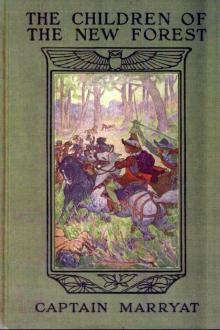 The Children of the New Forest
The Children of the New Forest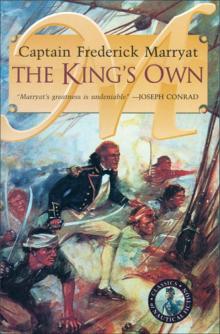 The King's Own
The King's Own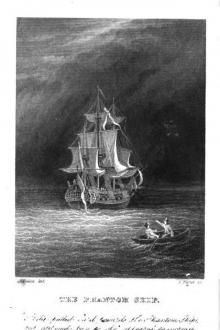 The Phantom Ship
The Phantom Ship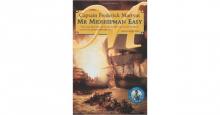 Mr. Midshipman Easy
Mr. Midshipman Easy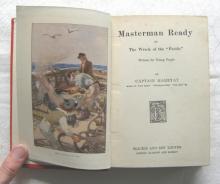 Masterman Ready; Or, The Wreck of the Pacific
Masterman Ready; Or, The Wreck of the Pacific Peter Simple; and, The Three Cutters, Vol. 1-2
Peter Simple; and, The Three Cutters, Vol. 1-2 Travels and Adventures of Monsieur Violet
Travels and Adventures of Monsieur Violet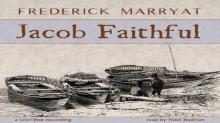 Jacob Faithful
Jacob Faithful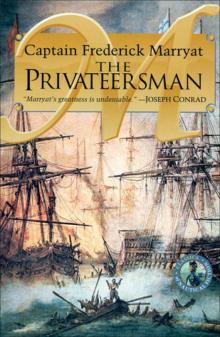 The Privateersman
The Privateersman Newton Forster
Newton Forster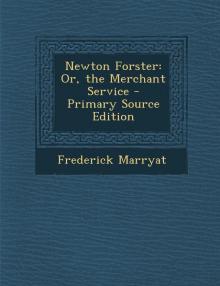 Newton Forster; Or, The Merchant Service
Newton Forster; Or, The Merchant Service The Pacha of Many Tales
The Pacha of Many Tales The Privateer's-Man, One hundred Years Ago
The Privateer's-Man, One hundred Years Ago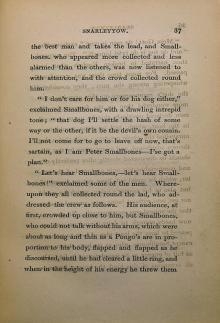 Snarleyyow, or, the Dog Fiend
Snarleyyow, or, the Dog Fiend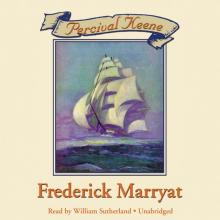 Percival Keene
Percival Keene The Travels and Adventures of Monsieur Violet in California, Sonora, and Western Texas
The Travels and Adventures of Monsieur Violet in California, Sonora, and Western Texas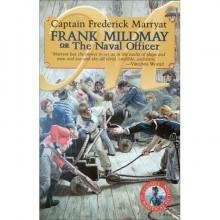 Frank Mildmay; Or, the Naval Officer
Frank Mildmay; Or, the Naval Officer The Mission
The Mission